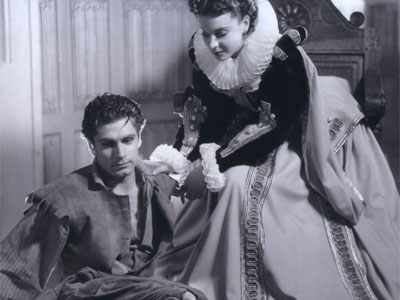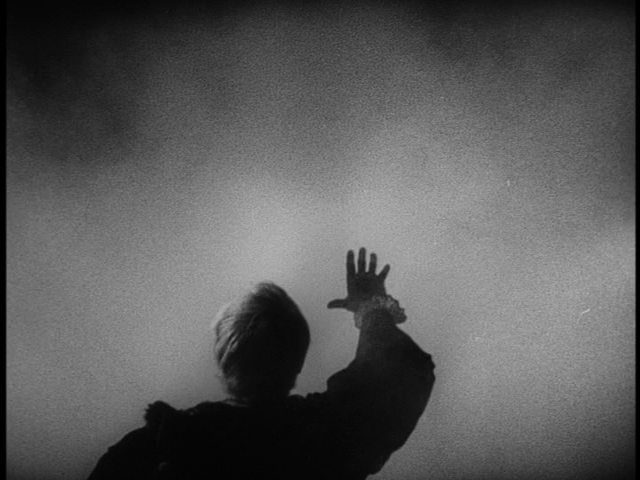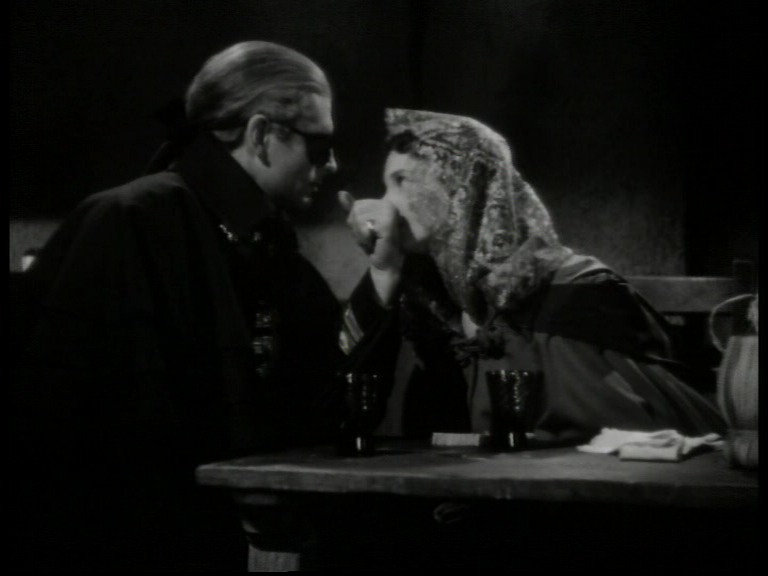I had an epihpany today.
I came to London to study for my MA in film because I’m currently interested in British cinema of the 1940s, and of course I got into the whole subject area through my fascination of Vivien Leigh and Laurence Olivier: two of Britain’s most famous film stars. However, I’m always hesitant to incorporate my interest of these two into my written work at school because, well, I’m always afraid professors will take one look at my paper and say “What are you doing? This isn’t ‘academic’ enough. This isn’t what film studies is about. How did you get into this school?” Shouldn’t I be writing about the French New Wave or Italian Neo-Realism and the real “artsy” stuff? Is talking about Vivien Leigh the equivalent of talking about Lord of the Rings or Twilight? I’ve always been afraid that might be the case since film students and scholars seem to keep the notion of fandom on the hush. It’s like, let’s talk about Godard and not mention how much we love Star Wars.
I had a meeting with my British film professor this afternoon to discuss my final paper for the class. I said I was interested in looking at some films (Olivier’s Hamlet and Michael Powell’s The Red Shoes) as related to concept of film as art and “quality” cinema in the 1940s. In talking it through, I realized that it might be a lot to handle for a 15 page paper. My tutor asked whether I was interested in textual analysis of certain films or more interested in a historical approach. I immediately said historical approach. What really fascinates me is the whole notion of how and why these films were made, the political and social constructs of the time, and how they were received. And stardom, let’s not forget stardom.
When I talked to my personal tutor last week, and told her of my purpose for coming here and what I wanted to do with my degree and my life career-wise, she said I totally should incorporate my passion for certain films and stars into my work if I can (well, I was definitely planning to incorporate them into my dissertation, anyway). But I’ve always been a bit sketchy about it. I mean, it’s popular cinema. But when I was discussing my British Cinema paper today, I kept referring to my interest in certain films and the Oliviers in that context, and my course tutor said he didn’t understand why I was acting like my academic work and my obvious passion for the Oliviers had to be two different things. Because they don’t. If I want to write a paper about Vivien Leigh, why shouldn’t I? I said “I don’t know, I always thought it wasn’t academic enough.” And he said it IS academic, and I know a lot about these things, so what I need to do is make sure I focus on specific questions that I can make arguments about in my writing so that it doesn’t end up being a biography, and if I want to use “Larry and Viv” as the means through which to answer these questions, that’s perfectly well and good.
It was so nice to get confirmation about it being okay to write about the things I’m passionate about in an academic setting! HUZZAH! So instead of writing about Hamlet and The Red Shoes, I think I will write about Henry V, Hamlet, and Shakespeare in British film in the 1940s–how J. Arthur Rank marketed these two films, the differences in reception and how they were made. Or something. I’m hoping this Olivier colloquium on Saturday will give me some good ideas. I’m so glad it’s acceptible to be both totally nerdy and smart (har har) at the same time!
I also got to borrow a neat little book called J. Arthur Rank and the British Film Industry! I’m off to go read!




I hate the idea that something has to be esoteric difficult and enjoyed only by a minority to be worth studying. It’s all about *how* you approach things, not the subject, in my opinion. Like your professor says, if you can use the academic techniques to say something important then I don’t think there needs to be such snobbery about what cinema deserves attention and what doesn’t. Topics that don’t have much to them (e.g. Twilight itself, though there’s certainly lots to say about it’s popularity) won’t stand up to serious arguments anyway.
I feel the same way!
I commend your professor on supporting your interest in Larry and Vivien and their cinematic roles. One of the things I did while studying film was look at the context of the film or film role in their place in historical time it was created; film in history. Take for example, “That Hamilton Woman”…it stars two of the most popular actors of the day…but the film itself is important within the context of World War II British cinema history. It was made to help bolster British sentiment during wartime symbolizing Britain’s fight against a dictator (in the film, Napoleon…in the current situation, Hitler) looking for world dominance. Churchill labeled it his favorite film. And of course the romantic love story between Horatio and Emma gives it that touch that grabs the feminine heart.
I hate the notion that the study of film can only be on the “art film”. Many films that were created during the 1930’s and 1940’s were created for more than a purpose than to just entertain and make a dollar. Just ask Frank Capra and many of the Hollywood directors of the era! So I say..more power to you, Kendra! Go for it! And btw…that book you borrowed is a good one!
HOORAY!!!!!!!
I am so glad you asked and got that answer!!!!
Go get ’em!
Dude, that’s awesome. You SHOULD be able to write about Viv and Larry and not feel like it’s not academic enough, fo sho. I’m glad you’ll get to do your thang. Work it. Haha.
3 MORE MONTHS until I invade your city! 🙂
Debbi–Yeah, me too. It’s fun to write about films in a historical context. I just suppose I’ve always been a bit uneasy about incorporating fandom into my school work because it’s something I like so much and wasn’t sure it would fly with teachers!
Amy–Me too, YEAHHHH!
Tati–3 months, yeayyyyy!!! I plan on working it!!
this is why i’m so glad i was able to take a star studies class a few years ago! there actually is quite a bit of scholarship on the subject of fans and stardom within the film studies community that is well researched and academic driven. i’ve always thought of it as integral to film and film history not something that is looked at askance. and now you can contribute to it. 🙂
Wow, i never knew you felt this way Kendra. I guess I can relate in some ways, its harder to write about people you feel your life and interests is so tied up with – how can you write a good academic paper on them without coming across as a gushy fangirl? You have to distance yourself a bit and write with a critical eye, it’d be good to get even a friends opinion on your paper, especially someone who doesn’t know that much about them before checking your draft with your tutor?
I’m excited to see what you do with this. I was looking around vivandlarry.com and getting all nostalgic because I remember when you first launched it :'(
Well, it all makes perfect sense to me! It’s always said that a writer should write about what they know and experience. I realize this is academic and not biographical and I can understand your misgivings about fandom, but, after all, Olivier is about as important a British actor as ever existed, so it’s not like it isn’t relevant. Despite that, and despite the fact that she may have felt he was greater, Vivien Leigh is a better film actress than he, and one of the most important actresses of all time, and certainly from Britain. There is a reason she has captured so many, and it goes way above and beyond her unparalleled beauty, or fandom. She is unusual in her approach; ahead of her time in her “inner ” and very realistic technique. Absent are the heightened theatrical gestures and fierce, forceful speeches (which Olivier did better than anybody!), instead, Vivien replaced this style of acting with more attention to reacting and listening, and being in “the moment “, and an almost pre-Method method, or un-Method method. I have always been fascinated by her amazing gift and have felt it vastly underrated. The characters she created were so different from one another. Myra Lester could not be further from Scarlett O’Hara. Anyway, I digress!
(I am a soprano, pianist, actress, vocal coach, and mostly retired performer in musicals, plays and operas; studied acting in LA, and in NYC, I studied the Method. However I am not one who thinks it is the only way. All methods are simply a means to an end. Many great actors rejected it; others, especially in America, embraced it, but I have no allegiance either way. However, like most people, I like acting to be believable. Viv and Larry were both brilliant in their ways but IMHO Vivien was even better in film. In one word: vulnerability.)
Those two are a fascinating subject for all things British cinema, or cinema, period, and shouldn’t be left out just because you are a fan too. I agree with your teacher and tutor. Your knowledge and passion for the Oliviers is wonderful and infectious, has brought together many others, and will only enhance your paper and make it better!
Thank you for all you bring to us, Kendra. It takes work and we appreciate it. I know my love for Vivien and Larry has only deepened since running into your blog and FB page, et al. 🙂